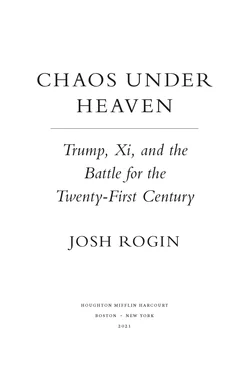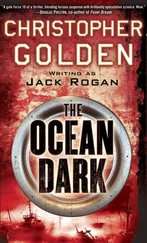But at that point in the campaign, few noticed. The Hillary Clinton campaign didn’t bother responding directly. Nobody thought Trump could actually win. If they had, they might have spent more time studying up on the man and his views—which, despite what many have claimed, had stayed relatively unchanged over several decades, and which centered on one grievance in particular: that America was being taken advantage of by China.
Trump on China
Donald Trump’s views on China are unique and, in a way, remarkably consistent. They are not the views of Steve Bannon or Peter Navarro. They are not the views of Gary Cohn, the former Goldman Sachs executive who served as his chief economic adviser while the administration was first plotting its approach to China; or Steve Mnuchin, the former Goldman Sachs executive and movie producer who became Treasury secretary. They are not the views of Jared Kushner either. They are Trump’s, and Trump’s alone—and perhaps for this reason, they have never been fully understood.
Donald Trump has fashioned himself a foreign policy expert for most of his adult life. In the 1980s, he frequently appeared on television to offer his services to negotiate with the Soviet Union on behalf of the United States. “Why don’t you negotiate the SALT talks for Reagan, Donald?” a man was quoted shouting at Trump in a 1990 profile by Vanity Fair. Even before he was focused on China, Trump thought he should be in charge of the government’s dealmaking abroad.
Trump’s views on China are scattered throughout the several books he wrote, cowrote, or paid a ghostwriter to write over the years. In his 2000 book, The America We Deserve, while he was rumored to be contemplating a presidential run, Trump wrote, “I believe the day of the chess player is over. American foreign policy has to be put in the hands of a dealmaker.” The two greatest dealmaker presidents, in Trump’s view, were FDR and Richard Nixon, whom Trump credited for opening up relations with China. But he also wrote an entire chapter entitled “How to Take on China,” which Trump said was “our biggest long-term challenge.” Trump argued that the United States had given China a pass on its bad economic behavior in the hope of gaining access to the Chinese markets. US businesspeople were too eager to believe Beijing’s claims of reform, he thought. For his part, Trump saw investing in China as still too risky. “I’m not going to be opening a hotel there any time soon,” he wrote, “but maybe someday it could happen.”
Trump went on to complain about China’s unfair trade practices, grousing that the foreign policy experts in the Clinton and Bush administrations had failed to stand up to Beijing, whose appetite for power had grown with the eating. Trump also predicted that the two countries would remain in a sustained state of confrontation as their values and interests diverged. And he noted that China was sliding quickly into patterns of brutal repression and human rights abuses.
Trump claimed that, unlike most of his business colleagues, he could not simply ignore these trends, because they showed the CCP’s contempt for the American way of life. “[The Chinese government] fears freedom because it knows its survival depends on oppression,” Trump wrote. “As such, it is a destabilizing force in the world, and should be viewed that way.”
Trump’s next book to talk in depth about China was published in 2011, when he was again threatening to run for president. Called Time to Get Tough, it claimed that Obama “bowed down to China and allowed them to steal our future” through such things as currency manipulation and technology theft. Trump wrote that Obama’s defense budget cuts had put the country in danger as China built up its military. He called China’s leaders “our enemy,” and wrote, “Those who pretend China is our friend are either naïve, incompetent or both. The Chinese can be reined in easily—we are their biggest customer. All we need is a president willing to stand up, not bow down to China.”
In 2015, during his presidential run, Trump put out another book, Crippled America: How to Make America Great Again. Here he noted his experience negotiating with the Chinese; specifically that he was the landlord to China’s largest bank in Trump Tower. He complained extensively about China’s unfair trade practices and shrugged off the idea that he shouldn’t have his own products, such as shirts and ties, made in China. “I’m a realist. I’m a competitor,” he said. Trump promised to use the power of the US economy to put pressure on Beijing to come to the negotiating table to make a deal. “When dealing with China we need to stand up to them and remind them that it’s bad business to take advantage of your best customer. And then we should sit down and figure out how to make this a more equitable relationship,” he said. “There are people who wish I wouldn’t refer to China as our enemy. But that’s exactly what they are.”
Trump’s professed concern for the human rights of the Chinese people did not carry over from his books to his presidency. But his long-held desire to reframe the US-China economic relationship by finally standing up to Beijing’s trade and financial abuses became a major theme of his campaign, and would come to define his administration as well. His concerns clearly had resonated with American voters, who by this point were keenly aware that there was a problem with China—one that would require a very different set of solutions from those that had been attempted by the current occupant of the White House.
“Something Is Not Working”
Toward the end of the Obama administration, there was mounting evidence not only that the CCP under Xi Jinping was headed in the opposite direction of what their leaders were professing but also that Xi was determined to shape the international environment in his favor. The Chinese government was becoming more externally aggressive, more internally repressive, and more totalitarian in its politics and economics, fusing state and business in a coordinated strategy not to join the world order that the United States and its partners had built after World War II but rather to undermine that system and replace it with one suited to China’s interests—and one that would protect the party’s survival and success above all.
The Obama administration had been slow to realize that Xi’s ascension to power at the end of 2012 marked a new era. Xi was a strongman nationalist who had a clear view that this was not a China that was rising, but a China risen. And his dream of an ascendant China—a vision that quickly became part of official Chinese rhetoric—was no secret. As CCP theorists crowed in late 2014, “Mao made the Chinese nation stand up, Deng made the people of China grow rich, Xi Jinping will make the people of China grow powerful.” He had a hardline approach domestically and he had big ambitions on the world stage. In Xi’s first major speech as general secretary, he pledged “to unite and lead people of the entire party and of all ethnic groups around the country while accepting the baton of history and continuing to work for realizing the great revival of the Chinese nation in order to let the Chinese nation stand more firmly and powerfully among all nations around the world and make a greater contribution to mankind.”
Xi viewed China’s interactions with the Western world as a battle of competing, incompatible ideologies. In 2013, the CCP issued an internal (later leaked) memo called Document 9, which reportedly was directly approved by Xi and reflected his views. It called on all Chinese officials to “see the ideological situation as a complicated, intense struggle.” It warned that Western liberal values were just attempts to undermine the CCP and its system of “socialism with Chinese characteristics.” Promoting democracy, human rights, civil society, neoliberal economics, and even journalism were all just Western excuses to attack the Communist Party. The memo called on all Chinese officials to “conscientiously strengthen management of the ideological battlefield.” The official who leaked it, Gao Yu, was thrown in prison.
Читать дальше











